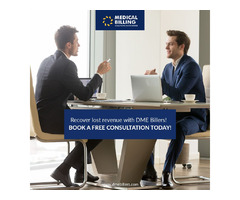The healthcare industry is constantly evolving, with new innovations, policies, and regulations being introduced regularly. One area that has garnered a lot of attention in recent years is reimbursement processes, with many experts suggesting that healthcare organizations would benefit greatly from being reimbursed in the form of bundled payments, managed care, and other shared-risk models.
Under these models, healthcare organizations would receive a set payment for an episode of care, rather than being reimbursed for each individual service provided. This approach would incentivize providers to deliver high-quality care in the most efficient and cost-effective way possible, as they would be responsible for managing the costs of the entire episode of care.
However, while shared-risk models have been proven to be highly effective in improving the quality and affordability of healthcare, they are not yet widely adopted in the industry. This means that providers must be well-acquainted with the shared-risk agreements they are dealing with and how they will impact the billing and reimbursement processes.
One of the biggest challenges of working with shared-risk models is the complexity of verifying information for each contract and patient individually. Every contract is different from another, and there are numerous variables to consider, such as the patient's diagnosis, treatment plan, and insurance coverage.
To overcome this challenge, healthcare organizations can use claim management tools that automatically compare various services and coverages to determine whether they are included in the organization's contract or should be submitted separately. This not only saves time but also helps ensure accurate billing and reimbursement processes.
Despite the challenges, healthcare centers can still avoid 90% of denials today, and they can put effective measures in place to further reduce these denial rates. This involves including both the front and backend teams in the emendation process to ensure that every step is accurately performed in order to harness maximum claim benefits.
In conclusion, while shared-risk models offer numerous benefits to healthcare organizations, they also come with significant challenges. By being well-informed about these models, using efficient dme medical billing software, and involving both the front and backend teams in the emendation process, healthcare centers can successfully manage the billing and reimbursement processes and deliver high-quality care to patients.


 Loading
Loading







